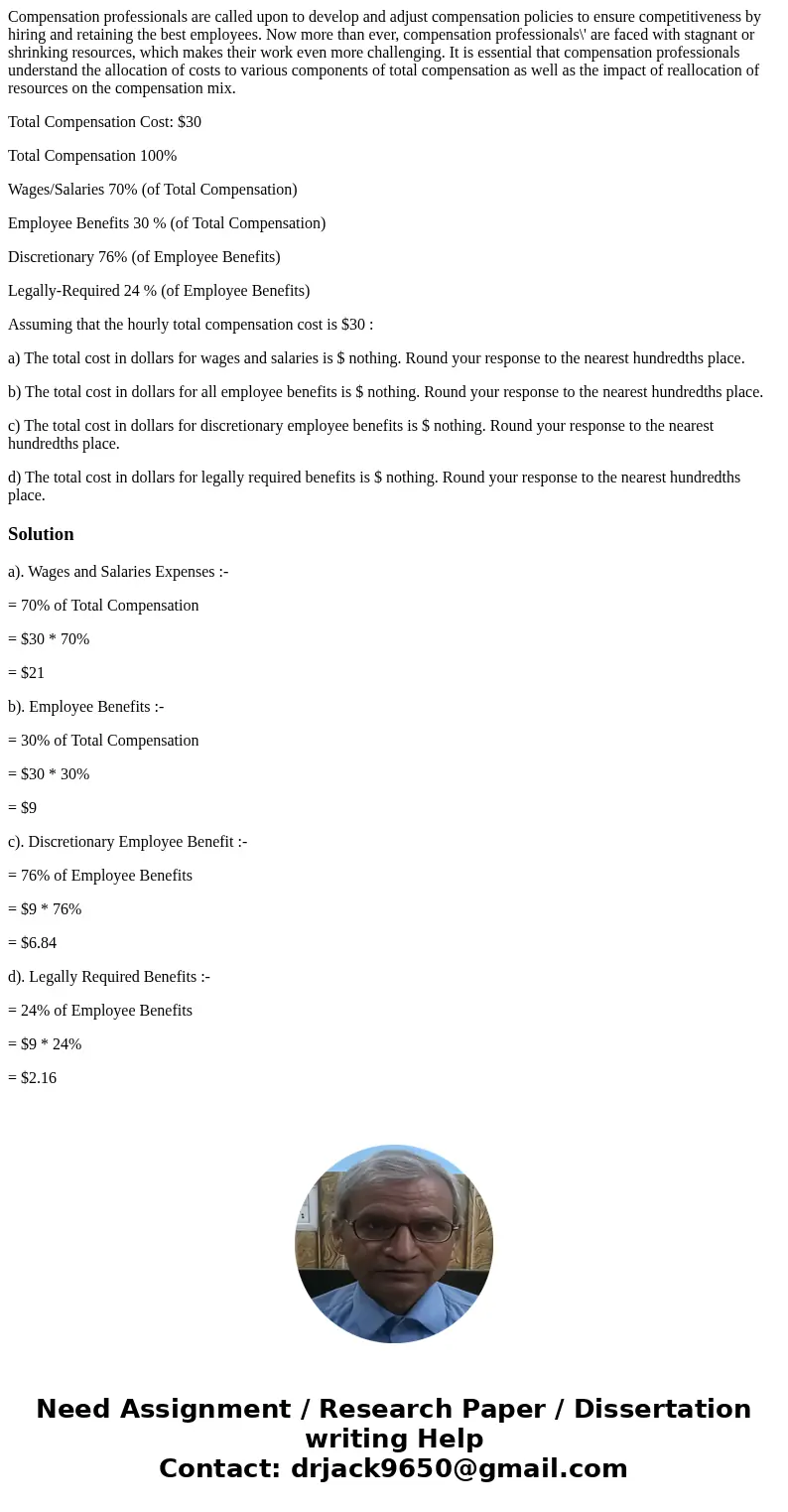Compensation professionals are called upon to develop and ad
Compensation professionals are called upon to develop and adjust compensation policies to ensure competitiveness by hiring and retaining the best employees. Now more than ever, compensation professionals\' are faced with stagnant or shrinking resources, which makes their work even more challenging. It is essential that compensation professionals understand the allocation of costs to various components of total compensation as well as the impact of reallocation of resources on the compensation mix.
Total Compensation Cost: $30
Total Compensation 100%
Wages/Salaries 70% (of Total Compensation)
Employee Benefits 30 % (of Total Compensation)
Discretionary 76% (of Employee Benefits)
Legally-Required 24 % (of Employee Benefits)
Assuming that the hourly total compensation cost is $30 :
a) The total cost in dollars for wages and salaries is $ nothing. Round your response to the nearest hundredths place.
b) The total cost in dollars for all employee benefits is $ nothing. Round your response to the nearest hundredths place.
c) The total cost in dollars for discretionary employee benefits is $ nothing. Round your response to the nearest hundredths place.
d) The total cost in dollars for legally required benefits is $ nothing. Round your response to the nearest hundredths place.
Solution
a). Wages and Salaries Expenses :-
= 70% of Total Compensation
= $30 * 70%
= $21
b). Employee Benefits :-
= 30% of Total Compensation
= $30 * 30%
= $9
c). Discretionary Employee Benefit :-
= 76% of Employee Benefits
= $9 * 76%
= $6.84
d). Legally Required Benefits :-
= 24% of Employee Benefits
= $9 * 24%
= $2.16

 Homework Sourse
Homework Sourse